Spring: n/a
Summer: n/a
Part-time (Daytime)
Overview
The MS in Science, Technology, Engineering and Mathematics (STEM) Education prepares students for careers as researchers and educators who will contribute to improving STEM education.
STEM Education is an interdisciplinary program that involves collaborations with the Tufts departments of Child Study and Human Development, Sociology, Biology, Chemistry, Mathematics, and Physics & Astronomy, as well as Chemical and Biological Engineering, Civil and Environmental Engineering, Computer Science, and Mechanical Engineering. Faculty and students in STEM Education also work with the Institute for Research on Learning and Instruction (IRLI) and the Center for Engineering Education and Outreach (CEEO).
To apply for this program, select the Education (MS) option on the application and then select which concentration you are interested in pursuing.
Program Outcomes
As a student in the program, you'll develop a deep understanding of the theory and research on learning, development, and teaching; cognitive science; and the sociocultural foundations of education. As you work on research alongside faculty and peers, you'll also grow your skills in research methods that will help you contribute to new theoretical insights and practical approaches to education. You'll also learn to communicate and disseminate your research through different mediums.
Alumni of the MS in STEM Education work on the development and implementation of research, curriculum materials, and educational activities in settings such as schools, research centers, museums, industry, cultural institutions, and community agencies. Graduates are also well prepared to go on to further graduate studies in doctoral programs.
Application Requirements
We strongly recommend that applicants explore current faculty research and reach out to potential mentors and the Program Director prior to submitting an application.
- Application fee
- Resume/CV
- Personal statement - Tell us about what motivates you to study STEM Education at Tufts. Describe experiences, research questions or dilemmas that have motivated you to pursue further study in STEM Education. Your personal statement should be between 1500-2500 words.
- Writing Sample - Where the personal statement is about your motivations, this should be a sample of your scholarly writing about a topic in STEM Education, citing references from relevant literature. The writing sample could be: a paper you have written for a prior course in STEM education; a research paper you have written for publication; a proposal for research that you are interested to study.
- Official TOEFL, IELTS, or Duolingo English Test, if applicable
- Transcripts
- Three letters of recommendation
Tuition & Fees
GSAS bills tuition using a per-credit billing model, meaning you are billed for the number of credits you take each semester. This billing model is used to provide students better flexibility so they may "pay-as-they-go".
| Tuition* | $1,270 per credit |
| Total Credits Required | 34 |
| Enrollment Status | Part-Time: 3-6 credits (typically 1-2 courses) Full-Time: 9+ credits (typically 3 or more courses) or qualifying enrollment criteria (assistantships, internships, or continuation courses, etc.) |
Estimating Tuition Costs for this Program
This example pathway outlines estimated tuition costs per semester using a typical full-time course load. This is one possible pathway to completion; actual credits, costs, enrollment status, and degree completion time may vary based on a student’s course load.
| Full-Time Pathway | Fall | Spring | Total |
| Year 1 | 10 credits | 10 credits | 20 credits |
| $12,700 | $12,700 | $25,400 | |
| Year 2 | 9 credits | 5 credits | 14 credits |
| $11,430 | $6,350 | $17,780 | |
| Estimated Total Tuition Before Aid* | $43,180* | ||
Note: this example does not account for any scholarships that may be awarded at the time of admission. GSAS offers generous merit- and need-based tuition scholarships for qualified applicants. A list of funding opportunities is provided below.
*Estimated based on 2025-2026 tuition rates. Rates are subject to change each academic year. For further information about the full cost of attendance, including health insurance, fees, and estimated indirect costs (housing, transportation, etc.), visit Student Financial Services.
Financial Aid & Funding Opportunities
At Tufts University, we believe that every qualified applicant should have the opportunity to pursue graduate study, regardless of financial circumstances. We are committed to helping you navigate the financial aspects of your education and strive to make graduate school accessible through a variety of support options.
Scholarships and Awards Available for this Program
- Merit- and need-based tuition scholarships for master’s programs: To be considered, be sure to indicate your interest within the Financial Aid section of your application.
- The Future Leaders Fellowship is a full-tuition scholarship for outstanding full-time master’s students and entry-level OTD students. Future Leaders Fellows are selected by the GSAS Dean following their admittance to Tufts.
- City Year Corps members, alumni, and staff are eligible to receive a minimum scholarship award of 25% off tuition.
Work Opportunities and Awards
- There are various graduate assistantships and work opportunities available for Master’s students across Tufts.
- The Graduate Student Open Access Publishing Fund provides financial support to students who want to publish their work open access.
- The Graduate Student Research Competition provides funding for expenses including equipment, materials, and supplies; research participant compensation; and expenses of travel to conduct research.
- The Graduate Student Conference Reimbursement Fund is available for students to travel to present or attend at a conference or professional meeting.
Visit our Graduate Financial Aid page for information on loans and financing options.
Career Outcomes
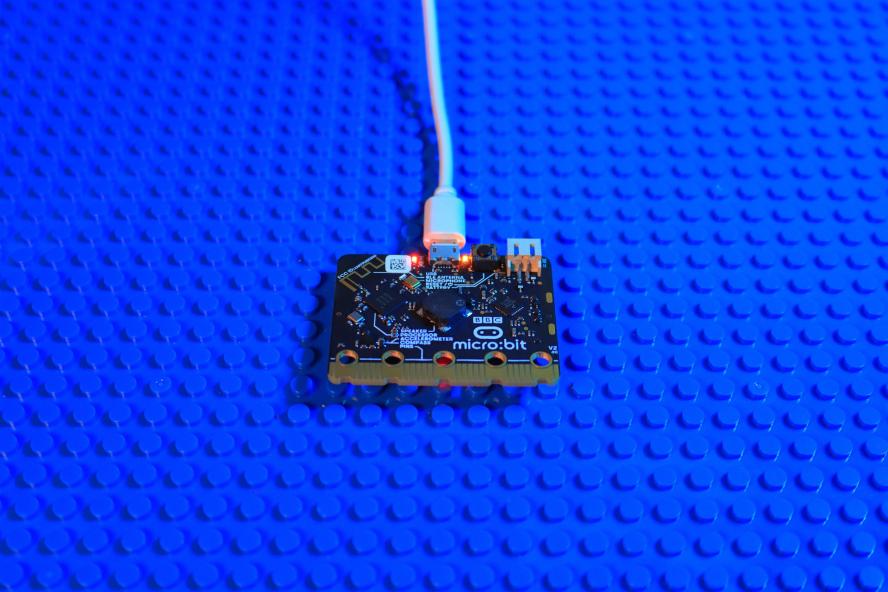
Average Age: 26
*Sources: GSAS-SOE Graduate Exit Survey 2020 - 2021 and Academic Analytics (Alumni Insights)
Faculty
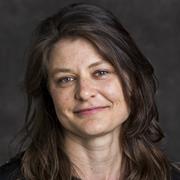
Julia Svoboda

Julia Svoboda
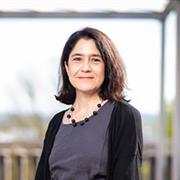
Bárbara M. Brizuela

Bárbara M. Brizuela
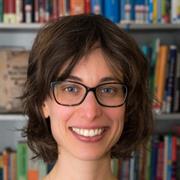
Ira Caspari-Gnann

Ira Caspari-Gnann
Research/Areas of Interest: Chemistry and STEM Education. In order to understand how and why successful teaching and learning of chemistry at the university level works, the Caspari research group focuses on analyzing students', teaching assistants' (TA), learning assistants' (LA), and instructors' reasoning, interactions, and culture. The group collects video data of classroom practices and conducts qualitative research interviews with instructors, TAs, LAs, and students to better understand how certain interactions and ways of reasoning lead to student sense making and learning. While zooming in and investigating how students connect aspects of chemistry, the group also zooms out and investigates classroom culture and how individual interactions and personal experiences integrate into larger systems of teaching and learning. The group uses this fundamental research as a theoretical basis for implementing teaching innovations and designing training opportunities in order to promote supportive learning environments for students that value and encourage their unique ways of being, knowing and doing.

Brian Gravel

Brian Gravel
Research/Areas of Interest: Brian's research focuses on students' representational practices in science and engineering studied using design-based research on learning technologies and socio-technical learning environments. This work builds from the development of SAM Animation, which is stop-motion animation software developed at the Center for Engineering Education and Outreach. Brian co-developed SiMSAM: a multi-representational toolkit to support creative computational modeling activities for middle grades learners. Curious about design, play, and making, his work involves partnerships with researchers and educators to explore dimensions of STEM learning at the intersections of people, materials, representations, and cultures. One such example is starting Nedlam's Workshop in 2014, a makerspace in an urban high school that emphasizes multidisciplinary inquiry. Through this work, he developed both empirical and theoretical contributions focused on heterogeneous design, STEM literacies in making, and analyses of how communities of makers organize to support each other's practices. Collectively, his research complicates and expands the field's understandings of how inquiry unfolds in making contexts, and how makerspaces can be a site for equitable and dignified participation in STEM. Brian's newer work involves teachers engaging in playful computational making to study how they (re)negotiate relationships to inquiry, disciplines, computational tools, and heterogeneous ways of knowing. This includes the exploration of geographies of care and responsibility that support STEM learning environments that center wellbeing. His scholarship examines the many facets of making and making spaces in schools, both in the United States and abroad. Brian's collaborative research has been funded by the National Science Foundation, the LEGO Foundation, and the Spencer Foundation. Selected Publications Gravel, B. E., & Puckett, C. (2023). What shapes implementation of a school-based makerspace? Teachers as multilevel actors in STEM reforms. International Journal of STEM Education. https://doi.org/10.1186/s40594-023-00395-x Gravel, B. E., & Svihla, V. (2021). Fostering heterogeneous engineering through whole-class design work. Journal of the Learning Sciences, 30(2), 279–329. https://doi.org/10.1080/10508406.2020.1843465 Gravel, B. E., Tucker-Raymond, E., Wagh, A., Klimczak, S., & Wilson, N. (2021). More than mechanisms: Shifting ideologies for asset-based learning in engineering education. Journal of Pre-College Engineering Education Research 11(1), 276–297. https://doi.org/10.7771/2157-9288.1286 Tucker-Raymond, E., & Gravel, B. E. (2019). STEM literacies in makerspaces: Implications for learning, teaching, and research. Routledge.
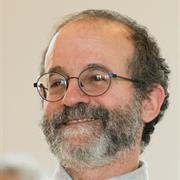
David Hammer

David Hammer
Research/Areas of Interest: Research on learning and instruction. My research is on learning and teaching in STEM fields (mostly physics) across ages from young children through adults. Much of my focus has been on intuitive "epistemologies," how instructors interpret and respond to student thinking, and resource-based models of knowledge and reasoning.
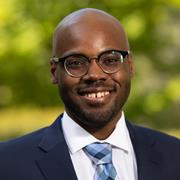
Trevion Henderson

Trevion Henderson
Research/Areas of Interest: Engineering education; Diversity, equity, and inclusion; team-based engineering pedagogies; engineering design thinking
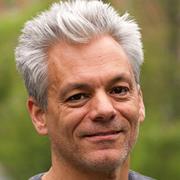
Andrew Izsak

Andrew Izsak
Research/Areas of Interest: The psychology of mathematical thinking, teachers' and students' understanding and use of inscriptions, multiplicative reasoning, applications of psychometric modeling for assessment and research in mathematics education.
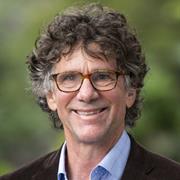
Milo Koretsky

Milo Koretsky
Research/Areas of Interest: engineering education research, learning and engagement in the university classroom, development of disciplinary practices, instructional design and technology development, instructional practices, organizational change, social practice theory
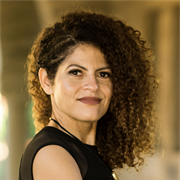
Greses Pérez

Greses Pérez
Research/Areas of Interest: cognition and learning sciences, science education, engineering education, diversity and identity, technology and education, language and cognition, multicompetence
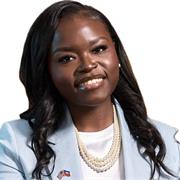
Takeshia Pierre

Takeshia Pierre
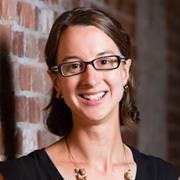
Kristen Wendell

Kristen Wendell
Research/Areas of Interest: learning sciences, engineering education, design practices, classroom discourse, engineering knowledge construction